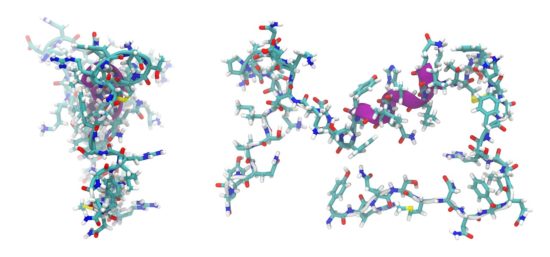“Researchers create matchmaking service for peptides and antibiotics”
“UBC researchers have matched small proteins, called peptides, with antibiotics so they can work together to combat hard-to-treat infections that don’t respond well to drugs on their own.
The study builds on previous research that showed that the peptides are key to making harmful bacteria more responsive to drugs.
“We had developed information from earlier experiments that showed there was some good synergy between peptides and conventional antibiotics,” said Bob Hancock, the senior author of the paper and a professor of microbiology and immunology at UBC. “It was our idea that maybe we could breathe some life back into antibiotics by adding peptides and thus make antibiotics work in infections where they weren’t working well before.”
The study aimed to find new treatments for infections caused by antimicrobial resistant bacteria including Escherichia coli and the so-called ESKAPE pathogens, a group named from the first-letter of six bacteria species: Enterococcus faecium, Staphylococcus aureus, Klebsiella pneumonia, Acinetobacter baumannii, Pseudomonas aeruginosa and Enterobacter. These infections collectively account for more than 60 per cent of all hospital infections, manifesting as abscesses in the skin or infections in internal tissues like the lungs or urinary tract.”
Read more at: PhysOrg

